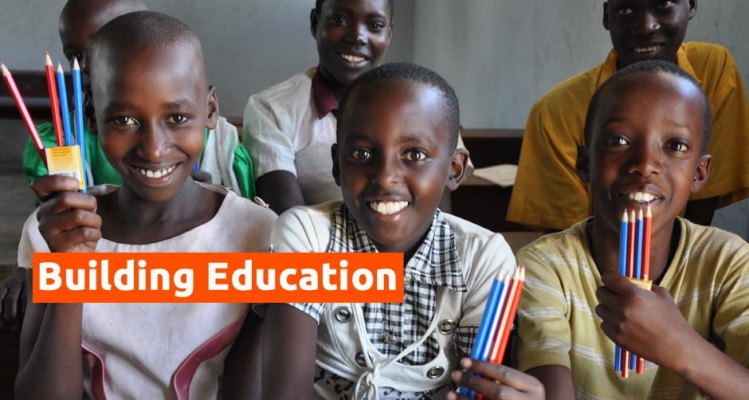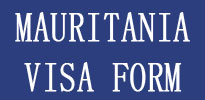Botswana: African Union merges science and education bodies
2016/01/13

The Africa Union has merged its science and education bodies in a move designed to improve sectoral relationships, effectiveness and efficiency. The African Ministerial Council on Science and Technology and the Conference of Ministers of Education of the African Union will presently operate as one entity.
“The decision of the heads of states was as well motivated by the need to streamline ministerial conferences, limit their number and confer the power to convene them to the African Union Commission and save costs,” Dr Mahama Ouedraogo, the African Union’s chief of human resources, science and technology, told University World News.
Ouedraogo said that with the demise of the African Ministerial Council on Science and Technology, or AMCOST, and the Conference of Ministers of Education of the African Union, or COMEDAF, issues relating to education, science and technology will be addressed by the Specialised Technical Committee on Education, Science and Technology or STC-EST.
The STC met from 19 to 23 October in Addis Ababa, Ethiopia, under the auspices of the African Union Commission, and was attended by 29 African ministers. It will meet once each two years.
Egypt was chosen to chair the bureau of the STC-EST. Nigeria and South Sudan are initial and second vice-chairs respectively, while Botswana and Cameroon are rapporteurs. The members of the bureau are ministers drawn from the two sectors.
Ouedraogo said that in addition, specialised technical committees have been empowered to take decisions on issues falling under their competence, except where there are financial or structural implications.
AMCOST last held a conference in Congo Brazzaville in November 2012, and since again the African Union has launched a 10-year continental science, technology and innovation strategy, STISA-2024.
Benefits
There is no doubt that the education, science and technology sectors are complementary and should drive Africa’s social and economic development and accelerate the transition of nations to innovation-led, knowledge-based economies, said Ouedraogo.
“A single body will facilitate an holistic view of education, science and technology issues, maximise synergies and place emphasis on innovation in order to change the paradigm in human capital development for the transformation of Africa.” It will as well facilitate a common vision for stakeholders in both sectors, which are cross cutting.
Ouedraogo said it is believed that all programmes of the commission related to the two sectors will benefit from the new arrangement.
These include the continental education strategy, the science, technology and innovation strategy, the technical, vocational education and training strategy and all initiatives related to youth empowerment, entrepreneurship, job creation and industrialisation of the continent.
The STC will reduce the number of meetings that would have otherwise been held by the two ministerial conferences. He said the African Union as well decided to set up a committee of 10 heads of national who will champion education, science and technology.
“It is foreseen that the STC-EST will as well statement to heads of national through this committee. This is an opportunity to provide additional visibility to the education, science and technology schedule and receive political support at the highest level.”
Ouedraogo said that within the commission, the Department of Human Resources, Science and Technology will be the secretariat as both sectors are within its mandate.
Universities support the merger
Professor Etienne Ehouan Ehile, secretary general of the Association of African Universities or AAU, who was involved in discussions leading up to the formation of the STC-EST, said that the ‘voice for higher education in Africa’ welcomed the move.
“We see the merger as a strategic approach to streamlining advocacy for African higher education. The education, science and technology sectors are complementary and should entirely drive Africa’s social and economic development and accelerate the transition of African nations to innovation-led, knowledge-based economies,” Ehile said.
The AAU would like to see governments prioritise tertiary education across all sectors because there are as well appropriate needs in sectors like health, agriculture, peace and others.
“Before we had to be represented in AMCOST and COMEDAF to articulate the needs of African higher education – which was not an efficient way of working.”
Ehile said the AAU network of 360 universities was positioning itself to respond to the continent’s needs in terms of scientific and human resource capacities.
“The AAU sees this as an opportune time for paradigm shifts in education, training, science and technology development,” he told University World News.
The AAU was an significant part of the African Union’s people-centred, long-term Schedule 2063, which is underpinned by education, science and technology as tools to help achieve continental development goals, he concluded.
- Related Articles
-
Routes Africa forum aims to improve African air connectivity
2016/05/15 An event dedicated to the development of the African aviation industry will take place next month in Tenerife (26-28 June) to encourage the launch of new air services to, from and within the African continent. Routes Africa 2016 will help to improve African connectivity by bringing together airlines, airports and tourism authorities to discuss next air services. Around 250 route development professionals are expected to attend the forum which was founded ten years ago to stimulate increase in the industry. -
While Europe is on the verge of breaking up, Africa is reaping the benefits of integrating, growing and developing its trading blocks
2016/05/13 The collapse of virtual borders is one of the majority remarkable things to have happened in our lifetimes. In the world of cyberspace, time and distance have become almost peripheral considerations at the same time as it comes to doing business. Services from software development to accounting can be delivered across the world in the blink of an eye. Next business leaders will struggle to imagine an era at the same time as communication was neither immediate nor virtually free. -
Africa’s economic growth is likely to be slower in the intervening years
2016/05/12 Africa’s economic increase is likely to be slower in the intervening years than in the before decade, according to the new rating by Ernst & Young using a barometer to gauge the level of appeal and success.“The baseline projection of the International Monetary Fund (IMF) for 2016 is presently reduced to 3%, while it was estimated at 6.1% in April 2015″, Ernst & Young points out in its rating. -
Raw materials have long been linked to Africa in many business people’s minds
2016/05/11 Oil, gold, diamonds, palm oil, cocoa, timber: raw materials have long been linked to Africa in a lot of businesspeople’s minds. And in fact the continent is highly dependent on commodities: they constitute as much as 95% of some nations’ export revenues, according to the United Nations Conference on Trade and Development. But propping a country’s entire economy on commodities is risky business, like building a mountainside home on stilts. You can’t be sure about the weather, or in this case the commodities market. The current free-fall of oil prices to less than $40 a barrel is a glaring example. “The commodities cycle has tanked out,” says Austin Okere, founder of Computer Warehouse Group (CWG), a Nigerian emerging multinational financial services company. “And this time it looks additional structural than cyclical, so it’s not a matter of waiting it out. Something has to give.” -
Africa,Protect Refugees With Mobile Banking
2016/02/08 "Mean spirited", "inhumane" and desecrating the spirit of the Refugee Convention are some of the milder criticisms levelled at Denmark's harsh new asylum laws, passed last week. Part new measures is a decision to strip new arrivals of any cash and valuables worth additional than 10,000 kroner (US$1,450), purportedly to pay for their upkeep. Switzerland and some southern German states have introduced similar policies. It's a move that reflects the fragmenting world of European migration policy, lacking in solidarity, empathy and basic human decency. But what of the financial implications for asylum seekers?
-
- Botswana News
-
- BOTSWANA: Routes Africa forum aims to improve African air connectivity
- BOTSWANA: Economic integration is helping boost trade and investment in Africa
- BOTSWANA: Africa’s economic growth is likely to be slower in the intervening years
- BOTSWANA: Beyond Commodities: How African Multinationals Are Transforming
- BOTSWANA: Africa,Protect Refugees With Mobile Banking
- BOTSWANA: African Union merges science and education bodies
- Trending Articles
-
- KENYA: Nairobi's air pollution sparks Africa health warning
- ISRAEL: Ugandan president’s rambling speech on Entebbe anniversary earns Israeli scorn
- INDIA: In Tanzania, PM Modi Meets The 'Solar Mamas' Of Africa
- SOUTH SUDAN: South Sudan capital rocked by renewed violence,
- BAHRAIN: Prime Minister of Bahrain, Prince Khalifa bin Salman Al Khalifa to Acquire 60% of Kempinski Hotels
- JAPAN: Japan policymakers to meet on markets, Bernanke to talk with Abe




.gif?1338940414)





